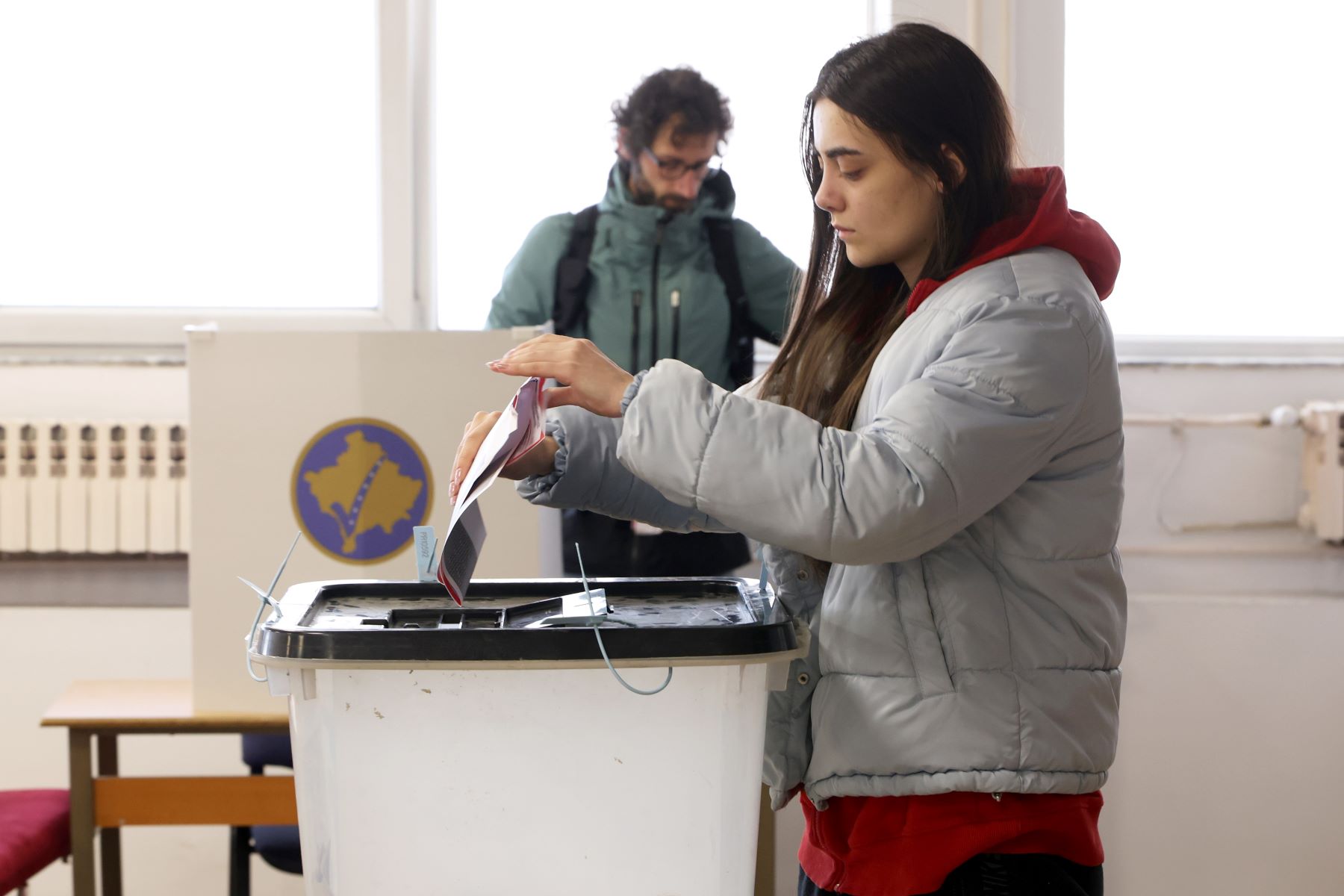Kosovo sociologists say that years of public passivisation have triggered resounding societal silence to the prolonged political crisis which has marred Kosovo for more than three months.
More than three months have passed since Kosovo entered an institutional crisis caused by failure to constitute its Parliament. This crisis has been further exacerbated by a number of events impacting the daily lives of citizens including rising electricity prices, increased cost of basic goods, a series of tragic workplace deaths, and controversial police conduct.
Aside from a few exceptions—mainly civil society groups and a number of individuals—there has been very little public reaction to the situation.
Experts relate this passivity to deep societal disillusionment, broken social trust, fear of personal consequences, and the erosion of collective solidarity.
Sociology Professor Fadil Maloku pointed to what he calls the “syndrome of repeated disappointment,” where citizens who are tired of unfulfilled promises—particularly regarding systemic corruption and the prolonged transition process—lose trust in institutions and view efforts to create change as pointless.
“Then there’s the paradigm of depleted social capital,” he explains. “Kosovan society has undergone a sudden and nearly invisible ‘divorce’ from a sense of community solidarity, especially from familial bonds and the feeling of belonging. As a result, citizens have become indifferent and emotionally disengaged,” he stated.
Maloku also highlights the process of “identity fragmentation” as a factor in weakening solidarity.
“The impulse to mobilise around causes like inequality, collective justice, and public safety has increasingly shrunk,” he says. “This leads to the transformation of the collective ‘we’ into a fearful, isolated ‘I.’”
Jeton Brajshori, another sociologist, attributes the public’s passivity to years of accumulated disappointment in political institutions and the ruling class. According to him, individuals who wish to contribute to change often see no results from their efforts, no matter how sincere or extensive these efforts may be.
“When you add selective justice to the equation, protests, petitions, and public discourse begin to feel like a waste of time. In the end, decisions are made by others, often to serve personal or party interests, rather than the common good,” Brajshori explains.
He also notes the lack of public trust in civil society organisations, which are often seen as politicised and used as a stepping stone for entering politics.
“There’s also widespread fear of losing jobs as a form of punishment for speaking out,” he added.
The cost of civic silence

Session of the new Kosovo parliament on April 25, 2025. Photo: BIRN
Both professors warn of the long-term consequences of this societal passivity.
According to Brajshori, the lack of public response to harmful policies or abuses of power creates an environment where politicians feel encouraged to act without accountability.
For Brajshori, this leads to misgovernance, nepotism, corruption, and growing social inequality.
“Unfortunately, Kosovo’s middle class is disappearing. In the future, we may be left with only an upper and a lower class—the former completely dominating the latter. This kind of disparity fuels migration, and those who remain will be increasingly forced to conform,” he emphasised.
Brajshori believes that Kosovo’s society has been drained by years of unmet expectations. Even though citizens are aware of the problems they face, they no longer believe they can influence change.
“Everyone is preoccupied with personal struggles, mostly deriving from their socio-economic status. This leaves little room for collective action,” he says. “It’s frustrating to see people rally around insignificant issues, like celebrities, yet hesitate to speak up for fundamental rights—like living with dignity.”
According to Maloku, the lack of civic “rebellion” and the division of citizen interests create a comfort zone for politicians, business elites, and other power holders.
“It offers them a sense of security in the responsibilities they’ve taken on—whether by vote or through employment—which in turn allows them to continue deceptive political schemes and maximum exploitation,” he states.
“Without civic engagement, politicians and business elites believe they’re above the law. Complaints are quickly silenced, which discourages others from speaking out in the future,” Brajshori added.
“When you’ve had enough—speak up”

A woman casts her ballot during the parliamentary elections in Prishtina, Kosovo on February 9, 2025. Photo: EPA/GEORGI LICOVSKI
For both sociologists, active citizen participation is not just necessary—it is the basis of a functioning democracy.
“It directly impacts our collective well-being and dignity,” Brajshori concludes.
Despite the silence of the majority, some individuals and civil society organisations have made efforts to protest the deadlock.
Lawyer Arianit Koci has staged several symbolic protests in front of Parliament— from placing blocking tape at the entrance, bringing donkeys, and even shaving his head to draw attention to the political deadlock. The message has been consistent: “When you’ve had enough—speak up.”
Following the February 9, 2025 elections, the newly elected Members of Parliament started their first session on April 15, but have failed to successfully conclude it 51 times. Without a constituted parliament, a new government cannot be formed.
On April 11, 2025, the Energy Regulatory Office approved a 16% increase in electricity prices, and by June 1, it also transferred approximately 1,300 large businesses into the open electricity market—a move opposed by most of them.
Meanwhile, the country has seen a series of workplace fatalities. On July 21, two men died after falling from a construction site in Gjakova. On the same day, another worker in Istog died a month after being injured on the worksite. The next day, a 44-year-old man in Skenderaj also lost his life at a construction site.
Furthermore, in early July, footage of police brutality emerged from Klina, showing officers beating a citizen during an arrest. The officers involved were arrested and are now under investigation.
A more severe case followed in Lipjan on July 7, where 27-year-old Agon Zejnullahu died after a violent police arrest. Five officers have been arrested and charged with negligent homicide. This event led to a symbolic protest in front of the Lipjan police station, but it did not evolve into a widespread movement.
English version prepared by Ardita Zeqiri





